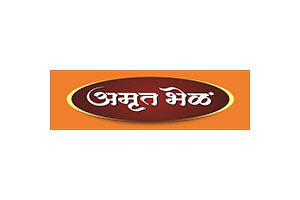Best Communications & Media Law Lawyers in Thane
Share your needs with us, get contacted by law firms.
Free. Takes 2 min.
List of the best lawyers in Thane, India
About Communications & Media Law in Thane, India
Communications & Media Law in Thane, India, governs the way information is created, distributed, and consumed across media channels, including print, broadcast, digital, and telecommunications. This field of law addresses issues such as freedom of speech, advertising standards, defamation, copyright, privacy, licensing, and regulatory compliance. With Thane’s proximity to Mumbai, a major media hub, legal matters related to the media and communication sectors arise frequently. The laws in this domain are influenced by various national legislations, regulatory bodies, and judicial precedents, ensuring a balance between public interest and individual rights.
Why You May Need a Lawyer
Several common scenarios may require the assistance of a lawyer specializing in Communications & Media Law in Thane:
- Facing defamation, libel, or slander claims arising from published or broadcast content.
- Dealing with copyright infringement or intellectual property disputes.
- Navigating media licensing or regulatory compliance with broadcasting laws and authorities.
- Handling privacy or data protection violations, especially for digital platforms.
- Challenging government censorship or content takedown notices.
- Rolling out advertising campaigns and ensuring they comply with relevant laws and codes.
- Responding to Right to Information (RTI) queries related to communication or media organizations.
- Contract negotiations for content production, broadcasting rights, or digital distribution.
- Addressing harassment and cybercrime in media communications, particularly on social platforms.
- Resolving disputes arising from employment issues within media organizations.
Local Laws Overview
In Thane, Communications & Media Law aligns with India's national legal framework, while local authorities may oversee implementation and enforcement. Key legislations and regulations include:
- Information Technology Act, 2000: Governs digital communications, cybercrimes, and data protection.
- Press & Registration of Books Act, 1867: Regulates publication of newspapers and books.
- Cable Television Networks (Regulation) Act, 1995: Controls cable TV operations and content norms.
- Copyright Act, 1957: Protects original literary, artistic, and broadcast content.
- Indian Penal Code, 1860: Provisions related to defamation, obscenity, and incitement.
- Regulatory Bodies: Functions of Press Council of India, Telecom Regulatory Authority of India (TRAI), and Central Board of Film Certification (CBFC) play a role in guiding or disciplining conduct.
- Advertising Standards Council of India (ASCI): Issues guidelines on ethical advertising practices.
In the Thane context, disputes may be heard in district or sessions courts, while regulatory compliance matters may require interaction with local police, the Maharashtra State Information Commission, or TRAI field offices.
Frequently Asked Questions
What should I do if I receive a legal notice for defamation related to my publication or online content?
Seek immediate legal advice. Do not respond without understanding your legal position. A lawyer can help review the alleged defamatory content, examine defenses such as truth or fair comment, and draft a response or contest the notice in court if necessary.
How can I protect my original content from unauthorized use or copyright infringement?
Register your work with the Copyright Office and include copyright notices. If infringement occurs, you may send a cease and desist letter, file a complaint, or pursue legal action for damages with the assistance of a media law lawyer.
Is it legal to record a phone conversation for media purposes in Thane?
Recording without the consent of all parties may violate privacy laws under the Information Technology Act and Indian Penal Code. Media professionals should obtain informed consent before recording and publishing such material.
What are the restrictions on publishing content related to ongoing court cases?
Media must avoid prejudicing the outcome of trials and must comply with the Contempt of Courts Act and any specific judicial orders restricting publication. Legal advice is recommended before covering sensitive matters.
Can government authorities ask me to take down online content in Thane?
Yes, under the Information Technology Act, government agencies may issue orders to take down unlawful content. Orders must follow due process, and you have the right to challenge such directives legally.
Do I need a licence to run a cable TV network or FM radio station in Thane?
Yes. Operating a cable TV network or radio station requires licenses from relevant authorities, such as the Ministry of Information and Broadcasting or TRAI, and compliance with content and technical standards.
How can I respond to allegations of copyright violation on my website or social channel?
Promptly investigate the claim. If valid, remove the infringing content. If you believe the claim is mistaken, a lawyer can help communicate with the complainant or defend your position in court, based on fair use or other exceptions.
What legal remedies exist for victims of cyber harassment involving digital media?
Victims can lodge a police complaint under the IT Act and Indian Penal Code. Courts may grant injunctions, direct take-down of abusive content, or award damages. Specialized cybercrime police cells in Maharashtra can assist.
Are there rules for advertising content in print or electronic media?
Yes. Advertisers must comply with ASCI guidelines, ensure truth in advertising, avoid disparagement, and not target minors inappropriately. Violations can lead to complaints, content withdrawal, and legal penalties.
What steps are involved in resolving a media or communications dispute in Thane?
First, attempt negotiation or mediation. If unresolved, seek counsel to file a complaint in the appropriate civil or criminal court. Regulatory complaints may be filed with bodies like the Press Council of India or the State Information Commission, depending on the matter.
Additional Resources
Individuals and businesses in Thane seeking legal assistance in Communications & Media Law may benefit from the following resources:
- Maharashtra State Information Commission: For RTI and public information matters.
- Press Council of India: For complaints regarding journalistic practices.
- Telecom Regulatory Authority of India (TRAI): For telecommunications disputes and compliance.
- Advertising Standards Council of India (ASCI): For advertising standards and self-regulation.
- Central Board of Film Certification (CBFC): For film certification and related issues.
- Local police and cybercrime cells: For urgent criminal and cyber matters.
- District Court, Thane: For litigation and dispute resolution.
- Local Bar Associations: For finding specialized lawyers in media law.
Next Steps
If you need legal assistance in Communications & Media Law in Thane, follow these steps:
- Identify the specific nature of your issue-defamation, copyright, compliance, etc.
- Gather all relevant documents, communications, and evidence.
- Consult an experienced media & communications lawyer in Thane for an initial assessment.
- Assess non-litigation solutions such as negotiation or mediation, if suitable.
- Take timely legal action, especially if deadlines or statutory limitations apply.
- Stay informed of your rights and regulatory requirements applicable to your situation.
A legal professional can help you navigate the complexities of Communications & Media Law, ensure compliance, and protect your interests, whether you are an individual, organization, or media entity in Thane, India.
Lawzana helps you find the best lawyers and law firms in Thane through a curated and pre-screened list of qualified legal professionals. Our platform offers rankings and detailed profiles of attorneys and law firms, allowing you to compare based on practice areas, including Communications & Media Law, experience, and client feedback.
Each profile includes a description of the firm's areas of practice, client reviews, team members and partners, year of establishment, spoken languages, office locations, contact information, social media presence, and any published articles or resources. Most firms on our platform speak English and are experienced in both local and international legal matters.
Get a quote from top-rated law firms in Thane, India — quickly, securely, and without unnecessary hassle.
Disclaimer:
The information provided on this page is for general informational purposes only and does not constitute legal advice. While we strive to ensure the accuracy and relevance of the content, legal information may change over time, and interpretations of the law can vary. You should always consult with a qualified legal professional for advice specific to your situation.
We disclaim all liability for actions taken or not taken based on the content of this page. If you believe any information is incorrect or outdated, please contact us, and we will review and update it where appropriate.










